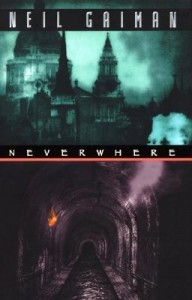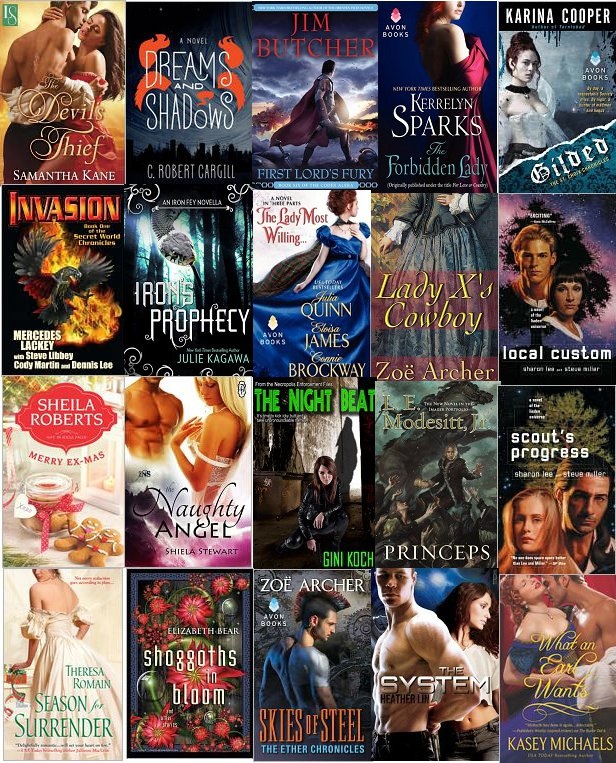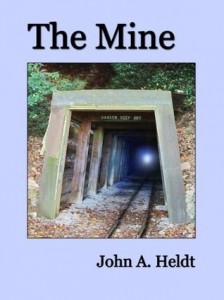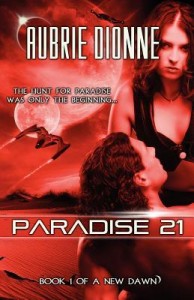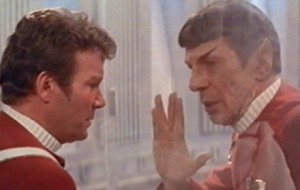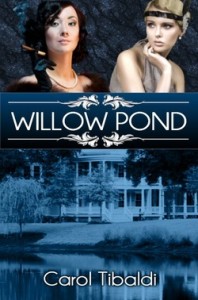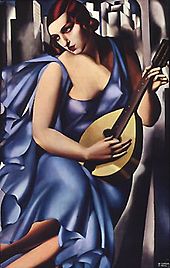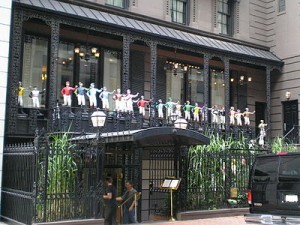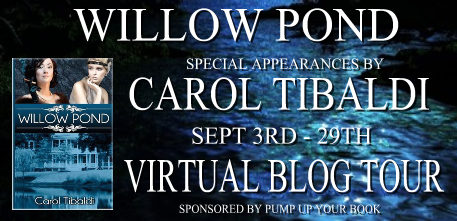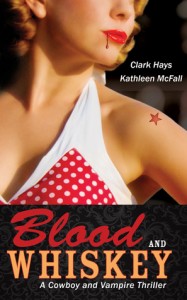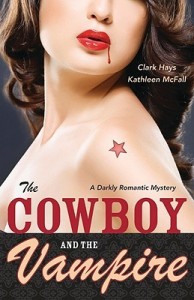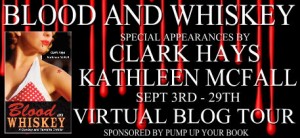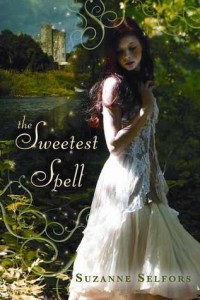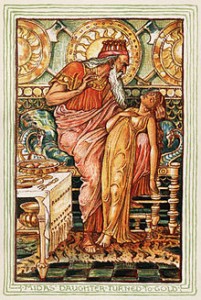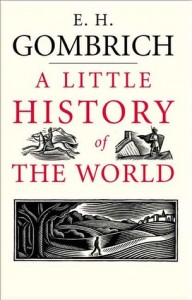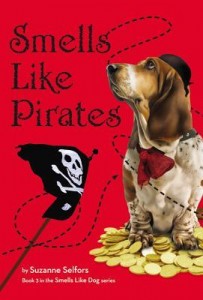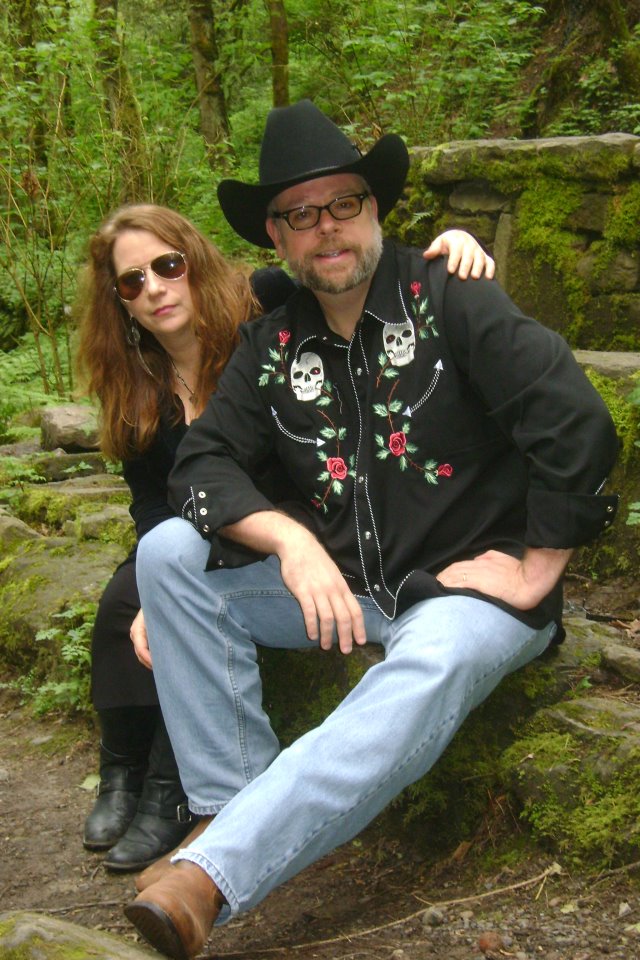 My very special guests today are Clark Hays and Kathleen McFall, the authors of the Cowboy and Vampire series. And one of the most fascinating (and detailed) interviews it has ever been my privilege to host. Read it and get a taste of why you should dive right into their Cowboy and Vampire thriller series (see my reviews of The Cowboy and the Vampire and Blood and Whiskey for all the deliciously gory details–we’re talking vampires, there’s supposed to be some gore!)
My very special guests today are Clark Hays and Kathleen McFall, the authors of the Cowboy and Vampire series. And one of the most fascinating (and detailed) interviews it has ever been my privilege to host. Read it and get a taste of why you should dive right into their Cowboy and Vampire thriller series (see my reviews of The Cowboy and the Vampire and Blood and Whiskey for all the deliciously gory details–we’re talking vampires, there’s supposed to be some gore!)
Marlene: Clark and Kathleen, can you please tell us a bit about yourselves? What do you do when you’re not writing?
Clark and Kathleen: Leading with an absolute stereotype, all authors are boring and we are not exceptions to that rule. Serious authors (and we don’t mean authors who lack cheerful dispositions, nor do we mean those who are financially successful — we’re talking about authors who take the pursuit seriously and place it equal to or above all others) tend to spend most (all) of their spare time locked in a room, examining the motivations of make-believe people moving across a fictional landscape. It’s self-imposed schizophrenia and there is simply nothing interesting about it other than, hopefully, how it makes readers feel later when they make their way through the finished product. But there is a lot of hard, boring work to get from idea to finished product.
That’s a long-winded way of saying the only thing we do when we are not writing is think about writing, talk about writing … and read. Reading is not only an enjoyable pursuit, it keeps the brain primed with what writing feels like once it’s delivered.
To make a boring story even more mind-numbing, we both work in communications — Kathleen for a research university, Clark for a national financial services company — so we spend all of our days writing, or thinking about the strategy behind how words will affect an audience. We both write for a living, and we both write to live, which is awesome, but also tiring. And boring.
Which is a shame because we live in Portland, Oregon — one of the coolest cities in the country. Along with all the creative people, great food and tremendous beer, it’s smack dab between the lovely, rocky and often undeveloped coast to the west, the sagebrush-covered high desert to the east and the mountains of the Gifford Pinchot Wilderness (where Bigfoot walks!) to the north. We do try to get away whenever we can, but generally tote our laptops and notebooks along with us to write or talk about writing.
Marlene: And speaking of writing, what is it like to co-author a book? What’s your process for writing a novel together?
Clark and Kathleen: Writing together is like making diamonds from carbon. It takes a lot of time, heat and pressure to end up with something rare, something that endures, something that people want to own. The time is something we carve out ourselves. The heat is generated by the shared creativity and the epic fights we have about … well, everything — from the phallic nature of em-dashes to the value of flashback sequences. As for the pressure, it’s self-imposed; we feel a responsibility to create simply the best work possible, work that — despite the seemingly crazy subject matter: cowboys and vampires — will stand the test of time and not do a disservice to the efforts of writers who came before us and those who will come after us.
For example, we’re not Kafka, but it’s okay — desired, actually — to aspire to that level of creativity and skill and to try and replicate his ability to change perceptions, if only for a short time, of readers. We write about cowboys and vampires, among other things. Kafka wrote about a man who turned into a giant cockroach. We want to be known for fun, entertaining books that still deliver quality fiction. Our books use familiar icons to take readers on a journey that examines the nature of reality, the meaning of consciousness and the nature of evil. And of course, it’s all wrapped up in a dark comedy and a sizzling love story.
The process of writing together is pretty straightforward. First, we come up with the concept. Then we plot it out. Next up is assigning chapters. After that comes the most crucial step: murdering our “regular” lives. We give up on social events, family obligations and anything fun. We immerse ourselves in the process, crank out chapters and then swap them to edit and back and forth, ad infinitum. Despite great odds, in the midst of all that madness and mayhem, a book begins to take shape. And after countless edits passing it back and forth, and countless fights and going to bed angry over the most ridiculous things, our two visions of the world are gradually, painstakingly shaped into a seamless whole. And hopefully that whole will be a glittering diamond and not fool’s gold (pyrite, which is formed under much less extreme conditions than diamonds).
Marlene: What made you decide to get into this whole co-novel-writing thing in the first place? There must be a story in there.
Clark and Kathleen: We started writing together to try and save our relationship. We were tentatively exploring the idea of reconciling after a two-year separation following an ugly break up. We had crashed together in an intense and passionate relationship but the intensity, the energy generated, was bigger than we were at the time, so we came up with creative ways to sabotage our own happiness and retreated to lick our wounds. In the time apart, we realized we had turned our back on something huge, something that deserved another attempt. But we wanted to be smarter this time, so we agreed on some ground rules.
We decided to write together to divert some of the crazy, creative energy into fiction. So far, so good.
Marlene: Would you care to tell us a bit about how you got together? It sounds like your story might make a good romance novel just by itself?
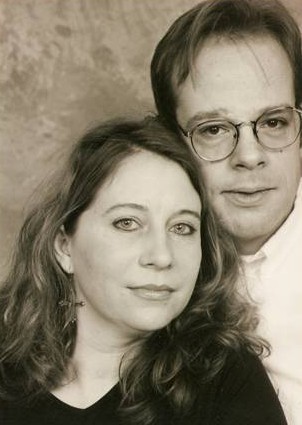 Clark and Kathleen: Right? Thank you! We think it would make an awesome story. We met while working survival jobs in a restaurant in Portland. We were both unhappily married to other people at the time and there was an immediate, visceral, magical connection like we’d met in a past life, or several past lives, but — and we want to make this very clear: nothing came of it. Other than having some fantastic conversations and, probably, flirting a bit more than we should have, absolutely nothing happened.
Clark and Kathleen: Right? Thank you! We think it would make an awesome story. We met while working survival jobs in a restaurant in Portland. We were both unhappily married to other people at the time and there was an immediate, visceral, magical connection like we’d met in a past life, or several past lives, but — and we want to make this very clear: nothing came of it. Other than having some fantastic conversations and, probably, flirting a bit more than we should have, absolutely nothing happened.
Several years later, luckily, our paths crossed again and we were both single. Lots happened then, so much so that we combusted into an epic break up (see above).
Marlene: The series you’re writing is Cowboy and Vampire. Western meets horror. Two genres that don’t normally ride together, so to speak. What inspired you to blend them?
Clark and Kathleen: When we got back together the second time and decided to write together, we wanted to come up with a concept that brought together our interests. Clark grew up in Montana and is a big fan of the west, interested in how modern life in cowboy country is built on all of the myths and legends of that short, golden era of the American west. Kathleen is interested in the intersection of science and religion, exploring concepts such as where the self exists, how morality is created and what Near Death Experiences mean. And we both have a macabre, dark side. Bring all that together, along with a desire to write something fun that would really grab readers, and you can see how undead buckaroos bubbled to the surface.
We met up after our two-year seclusion at a truck stop in Madras, Oregon, halfway between our respective homes — a neutral, no-man’s land. We started pitching ideas and when we got to cowboys and vampires, we both got really excited and the more we talked about it, the more possibilities we saw. We sketched out the rough plot line for the first book in crayon on the back of a paper placemat, then returned to our homes and started working on it. At the time, this was 1998, we didn’t have email (insert your own “when I was young” jokes) so we mailed the chapters back and forth written in long hand.
Marlene: Can you briefly describe the Cowboy and Vampire series, so readers know what to expect when they step into your world? Can they start with Blood and Whiskey, or do people really need to start at the beginning?
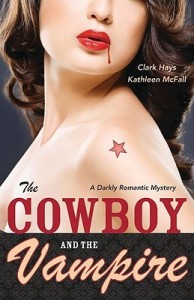 Clark and Kathleen: The Cowboy and Vampire Thriller Series is a love story about the power that exists when worlds collide and opposites attract. And Tucker and Lizzie, the main characters, couldn’t be more opposite.
Clark and Kathleen: The Cowboy and Vampire Thriller Series is a love story about the power that exists when worlds collide and opposites attract. And Tucker and Lizzie, the main characters, couldn’t be more opposite.
Tucker is a down-on-his-luck cowboy living in LonePine, Wyoming, population 438. He’s got a small ranch, big bills, an overly-sensitive dog named Rex and a good, but simple life. His world is completely upended when he falls hat-over-boot-heels in love with Lizzie Vaughan. She’s a hot-shot reporter from New York on assignment from her magazine to chronicle the disappearing west. They meet, sparks fly and bed sheets get twisted, and that might have been the end of it — a few nights of passionate sex and enough good memories to last a lifetime — but Lizzie has ancient vampire blood in her veins and the ruling elite of the vampire world want it bad.
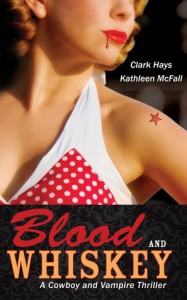 In The Cowboy and the Vampire, Lizzie finds out she is a vampire and turns to Tucker for help. They have to fend off a horde of evil vampires, led by her maniacal father who is bent on stealing the power in her veins and using it to reshape the world to his own twisted liking, while coming to terms with the fact that she will need blood to live.
In The Cowboy and the Vampire, Lizzie finds out she is a vampire and turns to Tucker for help. They have to fend off a horde of evil vampires, led by her maniacal father who is bent on stealing the power in her veins and using it to reshape the world to his own twisted liking, while coming to terms with the fact that she will need blood to live.
In Blood and Whiskey, which picks up on the action but is a standalone read, they face a new challenge — a race war brewing between the two species of vampires, Reptiles and Royals — and LonePine is caught right in the middle. As foreign vampires bent on testing Lizzie’s strength swarm to the tiny town, an undead assassin straight out of the old west has Lizzie in his gun sights.
Marlene: What book do each of you recommend that everyone should read, and why did you pick that particular book?
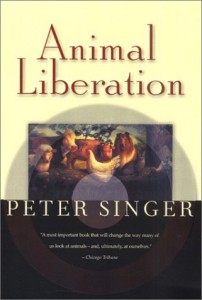 Kathleen: Animal Liberation, by Peter Singer. It’s a little outdated now, but it still gets you thinking about cruelty and our own role in it. Thinking about cruelty is a good state of mind to be in when you write about vampires.
Kathleen: Animal Liberation, by Peter Singer. It’s a little outdated now, but it still gets you thinking about cruelty and our own role in it. Thinking about cruelty is a good state of mind to be in when you write about vampires.
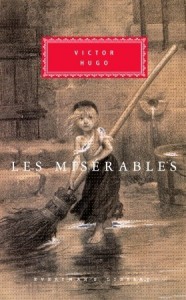 Clark: Les Misérables, by Victor Hugo; I think it’s one of the greatest books ever written and the level of character development is inspiring. Hugo spent more time developing minor characters than many contemporary authors spend on their protagonists. And that final chapter is just heart wrenching. I’m not sure the book would get published today because modern readers seem to prefer less exposition, but I consider it is a true monument to the craft.
Clark: Les Misérables, by Victor Hugo; I think it’s one of the greatest books ever written and the level of character development is inspiring. Hugo spent more time developing minor characters than many contemporary authors spend on their protagonists. And that final chapter is just heart wrenching. I’m not sure the book would get published today because modern readers seem to prefer less exposition, but I consider it is a true monument to the craft.
Marlene: Will there be more books in this series? What is next on your schedule?
Clark and Kathleen: We are hard at work on book three, tentatively called Undead Frontiers. And we are debuting a new paranormal detective series shortly after that. It has a tough female lead and is written in the old noir style. We call it “paranoir.” The first in the series is tentatively titled Plantlife.
Marlene: Now can you tell us 3 reasons why people should read your books?
Clark and Kathleen:
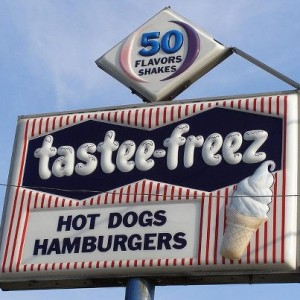 1) Pure entertainment. Our books are a great blend of funny and suspenseful. There’s intrigue, backstabbing, betrayal, pulse-quickening action and steamy romance all punctuated with deadpan black humor. For example, after barely surviving an undead assault at a horrific slaughterhouse and flash-freezing a vampire, Tucker has this to say:
1) Pure entertainment. Our books are a great blend of funny and suspenseful. There’s intrigue, backstabbing, betrayal, pulse-quickening action and steamy romance all punctuated with deadpan black humor. For example, after barely surviving an undead assault at a horrific slaughterhouse and flash-freezing a vampire, Tucker has this to say:
“Vampire-sicles,” Tucker said. “There’s a flavor that ain’t gonna catch on at the Tastee Freeze next summer.”
2) Gets your brain juiced up. Our vampires are sustained by The Meta. They die every morning, completely, and their “souls” — the sense of individuated self — reside temporarily in The Meta, a giant energy field that contains, sustains and stores life in between physical incarnations. For vampires, who have a near death experience every morning, it’s fairly run of the mill. For humans, accessing The Meta is life-changing. This aspect of the story continues to draw interest.
“While a number of existentialist underpinnings give the series some depth, the book is first and foremost a thriller, upping the ante in every chapter as bullets fly and relationships strain under the weight of old loyalties and new revelations. In a way, it’s a shame more time isn’t spent exploring the existence of this meta world where consciousnesses wait out the daylight hours and immortality has all sorts of ramifications for human spirituality.” Kirkus Reviews.
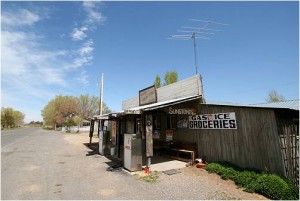 3) Welcome to the real modern west. The western part is utterly realistic and based on Clark’s experiences growing up on a ranch in Montana as well as our shared love of the remote reaches of Oregon. For example, we so fell in love with tiny Plush, Oregon on a recent trip there to mine sunstones, we decided to feature it — and sunstones, the state gemstone of Oregon — in Blood and Whiskey. A review from the nearest paper, the East Oregonian, indicates that we got the cowboy part right.
3) Welcome to the real modern west. The western part is utterly realistic and based on Clark’s experiences growing up on a ranch in Montana as well as our shared love of the remote reaches of Oregon. For example, we so fell in love with tiny Plush, Oregon on a recent trip there to mine sunstones, we decided to feature it — and sunstones, the state gemstone of Oregon — in Blood and Whiskey. A review from the nearest paper, the East Oregonian, indicates that we got the cowboy part right.
“These books are billed as romantic thrillers, and it’s certainly non-stop action from the get-go. They are full of the down-home dry wit and laid-back attitude that cowboys do so well. And as unlikely as their relationship is, Tucker and Lizzie’s bond is what makes the whole scheme work. So if you’re looking for a combination of sex, blood and Western romance, pour yourself a shot of the good stuff and settle in for a wickedly good read.” Renee Struthers, The East Oregonian
Marlene: Each of you, morning person or night owl?
Clark and Kathleen: Neither of us are really night owls, but only because our work schedules get us up early and send us to bed pretty early, with our brains spent. In a perfect world, one in which we never had to leave our little world (lovingly referred to as Reclusia) we would probably stay up later and sleep later.
Thanks so much for letting us stop by!
And thank you for interrupting your real and writing life (or that much-needed trip to Reclusia) to answer all my questions. This was awesome! Vampire-sicles, OMG I’m still laughing about the vampire-sicles.
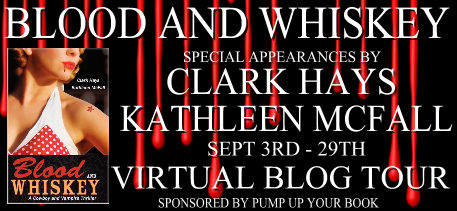
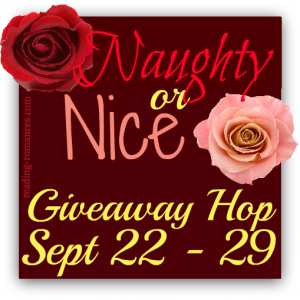 Wasn’t the Naughty or Nice Blog Hop a terrific idea? My vote would have been for mostly naughty, I think, but of course, I can’t enter my own hop. And I just finished a terrific romance that would actually have come down on the “nice” side of the equation. Mostly, I like a good story, no matter what. But then, I also like mysteries, where the point is a “nice” dead body, or science fiction, where the point is a fast rocket ship. I’m funny that way.
Wasn’t the Naughty or Nice Blog Hop a terrific idea? My vote would have been for mostly naughty, I think, but of course, I can’t enter my own hop. And I just finished a terrific romance that would actually have come down on the “nice” side of the equation. Mostly, I like a good story, no matter what. But then, I also like mysteries, where the point is a “nice” dead body, or science fiction, where the point is a fast rocket ship. I’m funny that way.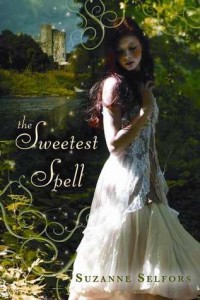 B+ Review: The Sweetest Spell by Suzanne Selfors + Chocolate Giveaway
B+ Review: The Sweetest Spell by Suzanne Selfors + Chocolate Giveaway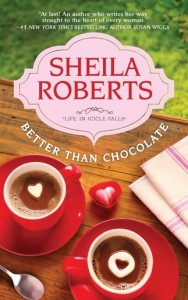 Tuesday, my guest will be Sheila Roberts, and the book she’ll be talking about (and that I will be reviewing) is her latest book, Better than Chocolate. While for some of us that may be strange thought, let’s just say that the story in the book makes a fairly good point. (Also the hero is allergic to chocolate, so his opinion on the subject is somewhat prejudiced.) The course of true love and the saving of a chocolate company and the town that depends on it, does not exactly run as smooth as a creamy caramel center in this small town romance. But the story is pretty yummy.
Tuesday, my guest will be Sheila Roberts, and the book she’ll be talking about (and that I will be reviewing) is her latest book, Better than Chocolate. While for some of us that may be strange thought, let’s just say that the story in the book makes a fairly good point. (Also the hero is allergic to chocolate, so his opinion on the subject is somewhat prejudiced.) The course of true love and the saving of a chocolate company and the town that depends on it, does not exactly run as smooth as a creamy caramel center in this small town romance. But the story is pretty yummy.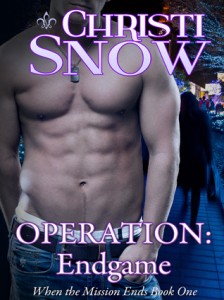 We switch from small town sweetness to the hard edge of military romantic suspense on Thursday with Christi Snow and her debut novel Operation: Endgame. Christi is a well-known romance blogger (Smitten with Reading) but this is her first time on the other side of the fence, and she’s hit this one out of the park. I’m really looking forward to her interview.
We switch from small town sweetness to the hard edge of military romantic suspense on Thursday with Christi Snow and her debut novel Operation: Endgame. Christi is a well-known romance blogger (Smitten with Reading) but this is her first time on the other side of the fence, and she’s hit this one out of the park. I’m really looking forward to her interview. Last week, my Bookish Rant on How Much Does an Ebook Cost? was the flip side of the problem. My post was about the high prices libraries pay for ebooks from the “Big 6” publishers and the difficulties libraries have getting books from most of those publishers. Small and mid-size publishers, like most of the romance publishers, are much, much friendlier to libraries.
Last week, my Bookish Rant on How Much Does an Ebook Cost? was the flip side of the problem. My post was about the high prices libraries pay for ebooks from the “Big 6” publishers and the difficulties libraries have getting books from most of those publishers. Small and mid-size publishers, like most of the romance publishers, are much, much friendlier to libraries.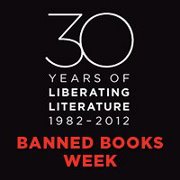 And last but not least, Banned Books Week starts today, September 30, and runs through October 6. This week’s Bookish Post at Book Lovers Inc will be about Banned Books Week, and I will also post it here while I’m off at the conference (scheduling posts is a wonderful thing!)
And last but not least, Banned Books Week starts today, September 30, and runs through October 6. This week’s Bookish Post at Book Lovers Inc will be about Banned Books Week, and I will also post it here while I’m off at the conference (scheduling posts is a wonderful thing!)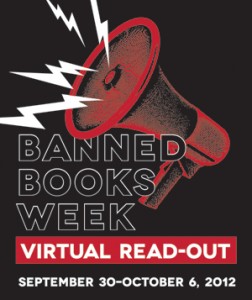 Anyone can participate in Banned Books Week. If there is no event in your area, you can take part in the Virtual Read-Out online. Just record 2 minutes reading from a banned book and why you think that book is important. The full info for participation is here.
Anyone can participate in Banned Books Week. If there is no event in your area, you can take part in the Virtual Read-Out online. Just record 2 minutes reading from a banned book and why you think that book is important. The full info for participation is here.
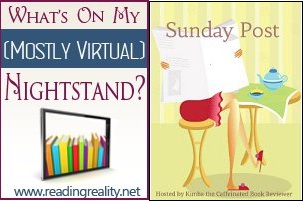
![STSmall_thumb[2]_thumb](https://www.readingreality.net/wp-content/uploads/2012/09/STSmall_thumb2_thumb2.png)
